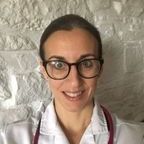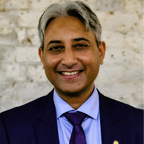This study day focuses on tracheostomies in the ICU setting and the associated multi-disciplinary roles whom collaborate to enhance patient care. Our faculty of clinical and research experts will consider the ‘who’ and the ‘how’ of tracheostomies, speaking valves and rehabilitation to answer key questions including- how early is ‘early’ for a tracheostomy? How can we complement weaning and rehabilitation progression for patients with a tracheostomy? And is pharmacology a help or a hinderance? With real life examples, and ongoing reference to the evidence base throughout, this study day is one not to miss!
 Learning Outcomes
Learning Outcomes
- To review the evidence for tracheostomy management linked to weaning, airway clearance and laryngeal function in the ICU setting
- To explore the physiological adaptations with tracheostomy in relation to communication, respiration, eating and drinking
- To be introduced to new frontiers in teaching and learning methods to enhance tracheostomy education
- To understand the latest evidence and approaches to laryngeal desensitisation
- To engage in expert panel discussion in individualised, patient centred care for patients with tracheostomy
 Programme
Programme
| Time | Title of Talk | Faculty |
|---|---|---|
| 9:00 | Welcome by Chair | Chair & Co-Chair |
| 9:05 |
Optimising Weaning This talk will consider the management of patients with complex or long-term weaning issues in ICU. |
Prof Tim Felton (Consultant in Respiratory and Critical Care Medicine) |
| 9:35 |
Switching the larynx back on This talk will provide an overview of laryngeal sensory impairment and the impact of interventions, such as airflow and pharyngeal electrical stimulation on laryngeal function. |
Prof Sarah Wallace OBE (Consultant SLT in critical care) |
| 10:05 | Questions | Panel |
| 10:15 | Coffee Break | |
| 10:30 |
The role of Pharmacology This presentation will discuss how pharmacological management can help and/or hinder secretion management. |
Holly Mackenzie (Principal Pharmacist in critical care) |
| 11:00 |
Optimising secretion clearance Through a joint PT/SLT presentation, this talk discusses the optimisation of upper airway secretion clearance. |
Gemma Jones (SLT in critical care) and Jason Nunn (PT in critical care) |
| 11:30 |
One-way valves: De-bunking myths This talk will focus on the myths surrounding the use of One-Way Valves, including lung recruitment, eating and drinking and exercise. |
Dr Anna Liisa Sutt (SLT in critical care) |
| 12:00 | Questions | Panel |
| 12:30 | Lunch Break | |
| 13:00 |
Managing late complications of bleeding This presentation will consider the latent impact and management of innominate artery bleeding |
Taran Tatla (ENT - Head & Neck Surgeon) |
| 13:20 |
Trachy Size This talk will provide a synopsis of her research findings of the implications of tracheostomy tube size for clinical practice. |
Helen Newman (SLT in critical care) |
| 13:40 |
Patient Case Study Using a patient case the speaker will discuss approaches to weaning alongside physical rehabilitation |
Ashwin Bhat (PT in critical care) |
| 14:00 | Questions | |
| 14:15 | Coffee Break | |
| 14:35 |
New Frontiers in Trachy Education This talk will provide a synopsis of recent developments in tracheostomy education. |
Paul Twose (Consultant AHP) |
| 15:05 |
Virtual Reality in Trachy Education Building on the previous talk, this session will specifically focus on the potential of Virtual Reality in tracheostomy education |
Brendan McGrath (Consultant in Consultant in Anaesthesia & Intensive Care Medicine) |
| 15:35 | Panel Discussion | Panel |
| 15:55 | Closing Remarks |
 Contact us
Contact us
If you have any questions about the event or need any further assitance, please do contact us via:
Telephone: (+44) 0207 280 4350
Email:
 Group bookings
Group bookings
Group bookings can be made for multiple delegates and paid by credit card via the event booking page.
We are also able to invoice for group bookings of 10 or more delegates, or where the total value is over £1,000. Group bookings can only be made up to 6 weeks in advance of an event and must be paid in full prior to the event date to avoid tickets being cancelled.
To book a group via invoice, please download the form below, complete and return to [email protected].



























